Our Alumni
Map of MPGP Alumni Locations
Medical Physics Resident, University of Pennsylvania, Department of Radiation Oncology
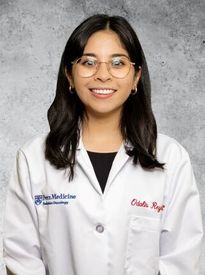
“The program offered many resources and a big network, and I use what I learned every single day.”
Born and raised in Guatemala, Odalis Reyes Guevara, MS was introduced to medical physics as an undergraduate student at a summer program in Ecuador. When she heard that she could help people through a career in medical physics, she wanted to learn more. She connected with a medical physicist for clinical shadowing and research and earned a BS in physics at the Universidad del Valle de Guatemala.
Odalis then chose our Master of Science in Medical Physics program because she felt that our clinical opportunities were impressive and would build her resume for a medical physics residency position. Our academics were important, as well. She completed a thesis research project which focused on the commissioning of a robotic arm for preclinical proton FLASH pencil-beam scanning. Odalis’s favorite course was Physics of Radiation Therapy, which introduces aspects of the clinic from a physics perspective. It solidified her interest in radiation therapy. She noted, “The faculty are experts in the field. They are knowledgeable and enjoy what they do.”
Odalis felt that networking with the medical physics community was the most valuable aspect of our program. She cherished the support of her career mentor, Jaclyn Marcel, who provided career guidance and advice with navigating Philadelphia, which was helpful to Odalis as an international student. Odalis also appreciated collaborative work with classmates who broadened her knowledge, improved teamwork skills, and enabled personal growth.
While a graduate student, Odalis utilized Penn and local resources. She celebrated Hispanic culture with La Casa Latina: The Center for Hispanic Excellence at Penn; was awarded the MPGP Diversity, Equity, and Inclusion Scholarship; and received funding from The Graduate and Professional Student Assembly (GAPSA) for travel to a professional conference. Coming from a country where coffee is consumed plentifully, Odalis particularly enjoyed exploring the coffee shop scene in Philadelphia, finding them relaxing places to sip and study with friends.
Medical Physicist, New York Proton Center

"Penn’s program really has it all: excellent coursework, lots of research and clinical experiences, and amazing mentorship. Best graduate school decision I could’ve made."
Allison Haertter, MS is a 2021 Master of Science in Medical Physics graduate. She then held the position of Chief Medical Physics Resident in the Department of Radiation Oncology at the University of Pennsylvania.
Allison was first introduced to medical physics and the Radiation Oncology department at Penn through undergraduate research with Dr. Kevin Teo. Through this experience, she met many staff and faculty physicists. Allison was drawn to apply to the MSMP program at Penn because of our great residency match rate, and she noted how many current faculty and staff had graduated from the Medical Physics Graduate Programs and stayed for employment – she felt that spoke highly of the student’s experience in the program and department.
While enrolled in the MSMP program, Allison’s favorite course was the Clinical Practicum. She felt this course, more than any other course, prepared her for residency. She said, “It’s one thing to see it in class, but seeing it in person makes it easier to understand how everything interacts." Allison felt her experience during Clinical Practicum was the single most essential element of the program that helped to prepare her for residency.
Allison also found our career mentor program to be an invaluable. Her mentor, Jaclyn Marcel, helped Allison to prepare for residency by reviewing her resume, hosting mock interviews, and setting up additional shadowing experiences to help Allison bolster her resume.
Originally from Reading, Pennsylvania, Allison holds a Bachelor of Science in Applied Physics from West Virginia Wesleyan College. While at Penn, she loved living in Philadelphia. She found the city to have many cultural attractions and to be fairly inexpensive for a graduate student.
Medical Physicist, ProCure Proton Therapy Center
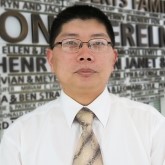
"My certificate coursework allowed for many clinical opportunities, and that helped me earn a very competitive residency."
Post-Graduate Certificate in Medical Physics, University of Pennsylvania ‘16
PhD in Physics, Wuhan University ‘01
BS in Physics, Wuhan University ‘96
“My certificate coursework allowed for many clinical opportunities, and that helped me earn a very competitive residency at Penn Medicine’s Roberts Proton Therapy Center,” shares Haoyang Liu (Post-Graduate Certificate in Medical Physics ’16), a professional medical physicist at ProCure Proton Therapy Center in Somerset, NJ.
Haoyang came to the University of Pennsylvania with a PhD in Physics, so the Post-Graduate Certificate program was the perfect fit to help him gain CAMPEP-accredited training. “I came from a biophysics and computational physics background, so this was a whole new field for me. I learned new skills every day, especially during the clinical experiences. I worked with highly accomplished physicists and dosimetrists who showed me all of the latest applications and technologies.”
During his studies, Haoyang took advantage of the many shadowing and research opportunities. “You get exposed to almost everything; whatever you need to know or learn is here. We have the proton facility, which is a unique feature of this program.” He adds, “At Penn, no matter if you are here for a certificate, a master’s or a residency, the people you work with want to help. The equipment and the mentors are there to learn from, and you just have to reach out.”
Before joining Penn, Haoyang’s research career was focused on medical services including drug discovering and developing applications. He wanted to get more involved in patient care, so he decided to make the switch into medical physics. “In this field, you get the satisfaction of helping people,” he continues, “What you do makes a difference in a patient’s treatment and their life.”
Medical Physicist, Mayo Clinic
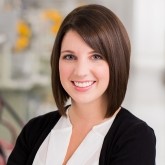
“In terms of the classroom, research, and clinical experiences, no other program compared to Penn."
Master of Medical Physics, University of Pennsylvania ‘14
Master of Science in Physics, Ball State University ‘12
Bachelor of Science in Physics, Indiana State University ‘10
“I was a unique case because I joined Penn’s Master of Medical Physics (MMP) program when I already had a master’s in physics,” shares Malorie Stowe (MMP ’14), “I didn’t have to retake foundational courses, so it opened my schedule. Knowing I wanted to be a clinical physicist, I spent that extra time in a clinical practicum through Penn’s partnership with Einstein Medical Center. I also did the daily quality assurance (QA) tests at the Roberts Proton Therapy Center. Those were completely invaluable experiences.”
Malorie came to Penn because she knew a career in medical physics required CAMPEP-accreditation. She was drawn to Penn’s stellar facilities and hands-on opportunities for students. “In terms of the classroom, research, and clinical experiences, no other program compared to Penn,” she continues, “In a job, you don’t always learn the ‘why’-- you just learn the ‘how.’ I appreciated getting that time in the clinics and centers to learn the ‘why.’”
Malorie also gained in-depth knowledge of the latest technologies and equipment offered at Penn. “When I was working on the proton machinery, a physicist was always around, but I had a lot of autonomy setting up for the QA. It gave me time with the machines without the pressure of having a patient on the table.”
For students and professionals considering a career in medical physics, Malorie advises, “Do your homework as far as the field is concerned. Residencies are very competitive. Any place you go, they’ll ask ‘why you?’ And you have to find that for yourself—what makes you stand out when you go on interviews.” Along with her applied learning at Penn, Malorie was also a teaching assistant for an image-based anatomy course. Malorie landed a residency at The Ohio State University and later a position as a medical physicist at the Mayo Clinic because of her rich clinical portfolio and well-rounded academic background.
“Penn offers so much as a university, beyond the clinic and the classroom,” she remembers, “There’s always something exciting happening in Philadelphia, too. I loved my time at Penn—they will forever be some of the best years of my life.”
Medical Physicist, Pennsylvania Hospital
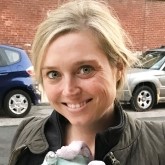
"The quality of the coursework and applied practice was the perfect combination."
Master of Medical Physics, University of Pennsylvania ‘11
Bachelor of Science in Physics, University of Delaware ‘09
“I applied to a few medical physics master’s and physics PhD programs. When I got into Penn it was a pretty easy decision,” recalls Jane Lawson (Master of Medical Physics ’11), a certified therapeutic medical physicist. Jane was first inspired to apply to Penn’s Master of Medical Physics after a faculty member from the program and practicing medical physicist at Pennsylvania Hospital, Dr. Kathleen Spillane, visited Jane’s undergraduate physics class at the University of Delaware. She notes, “After Dr. Spillane’s presentation, I was immediately sold on the field and Penn. I loved the idea of being able to work with patients and apply physics every day on the job.”
As a full-time student in the Master of Medical Physics program, Jane took advantage of the hands-on opportunities. She spent a year completing a clinical internship at Bryn Mawr Hospital where she got to experience the day-to-day responsibilities of medical physicists. Jane adds, “I liked working one-on-one with a physicist and applying my coursework. The methods and theories made a lot more sense after seeing them in action.”
Jane gained even more practical training with Penn Medicine by performing morning quality assurance tests at the Roberts Proton Therapy Center. She also completed proton treatment planning techniques and research with Penn faculty. “The quality of the coursework and applied practice was the perfect combination,” she shares.
After earning her master’s degree, Jane spent five years as a medical physicist with Kennedy Health (now Jefferson Health) in its southern New Jersey hospitals. She then transferred to Penn Medicine and is now practicing at Pennsylvania Hospital. She reflects, “Penn is a great place to study, it opens up a lot of opportunities. It’s the kind of place that makes you want to stick around. One of my career goals was to come back to Penn, and I’m so thrilled to have achieved that."
CEO, MedCrypt
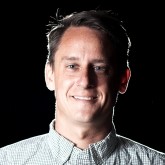
"The relationships I built with students, alumni, and professors have been life-changing.”
Master of Business Administration, Wharton School, University of Pennsylvania ‘12
Master of Medical Physics, University of Pennsylvania ‘10
Bachelor of Science in Physics, West Chester University ‘04
“The results of my experiences at Penn exceeded my expectations, especially when I consider that I was a high school physics teacher when I started my graduate studies,” shares Mike Kijewski, an entrepreneur in radiation oncology and medical imaging software and tools. Before joining Penn, Mike knew he wanted to transition his career into healthcare, and do something that involved physics, computer science and clinical applications. Medical physics was the perfect fit.
Penn’s stellar reputation and its cutting-edge facilities drew Mike to the Master of Medical Physics program. During his clinical rotations, he worked closely with professional physicists, dosimetrists and radiation therapists—and those experiences inspired his first successful start-up. While earning his degree, Mike founded Gamma Basics, a software application that helps hospitals assess their radiation safety compliance.
Mike explains, “Radiation oncology is so dependent on computers for workflow, and all of the data is digital from the start. I saw where improvements could be made and when I developed the technology with my co-founders, I knew I wanted to get the product to market.” He then used Penn’s well-connected network to land Gamma Basics’ first major customer, Varian Medical Systems, the largest manufacturer of radiation oncology and proton therapy equipment. “I shadowed a physicist at Penn Medicine, Dr. James McDonough, and he sent an e-mail to his contacts at Varian. Everything kept rolling from there,” he continues, “Penn very directly aided every aspect of the success that I’ve had so far.”
Immediately after completing the Master of Medical Physics program, Mike enrolled in Wharton’s Master of Business Administration (MBA) to continue his entrepreneurial path. After completing his MBA, Mike moved to southern California to work on Gamma Basics full time. Varian purchased Gamma Basics shortly after Mike graduated from business school. He then worked for Varian as a portfolio manager. In early 2016, Mike founded his latest venture, MedCrypt, a company that develops technology for medical device data security.
Reflecting on his academic career at Penn, Mike notes, “There were a couple of classes that I took where I found the edge of my academic ability.” He continues, “The vast majority of my peers in the industry have PhDs, so having that clinical background and rigorous coursework has helped my career in so many ways. I can tell you firsthand, the things I learned in class were incredibly valuable and the relationships I built with students, alumni, and professors have been life-changing.”

